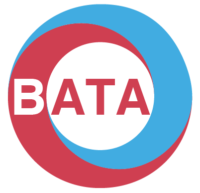AAC Evidence Base Research Project: May 2012 Update
At the beginning of the research project, the University of Sheffield (working with an honorary researcher from Barnsley Hospital) conducted a systematic literature reviewof academic articles relating to high tech AAC published over a 10-year period.
The first article on this work has been published in the most recent edition of the International Journal of Language & Communication Disorders. The article reports on what research has to say about the factors that help people to use high tech communication aids. Follow these links to read the abstract and short lay summary.
A second article from the systematic literature review has been accepted for publication by the journal Folia Phoniatrica et Logopaedica and we expect it to be published later this year. This article reports a review of 65 papers that describe interventions using high tech AAC and evaluate their effectiveness.
The review found evidence that high tech AAC may be beneficial for both adults and children with a range of conditions. It also identified that further work was needed to establish standard outcome measures for interventions. Related to this, Communication Matters has recently funded a project worker, under the direction of a working party, to produce a framework and outcome measurement toolkit to inform practice and decision making.
Further articles will be published next year on the research work conducted by the University of Sheffield and by Manchester Metropolitan University. The findings from the research will be presented in the AAC Evidence Base website as well as at conferences, and a final research report will be published.
If you are a person who uses AAC, a family member, carer or practitioner, and would like to participate in AAC research then please visit the Research Involvement Networkwebpage at www.communicationmatters.org.uk/page/research-involvement-network for more information or contact the Research Manager.
For more information…
- visit www.communicationmatters.org.uk/research
- or email Katie Holmes, Research Manager on [email protected]






